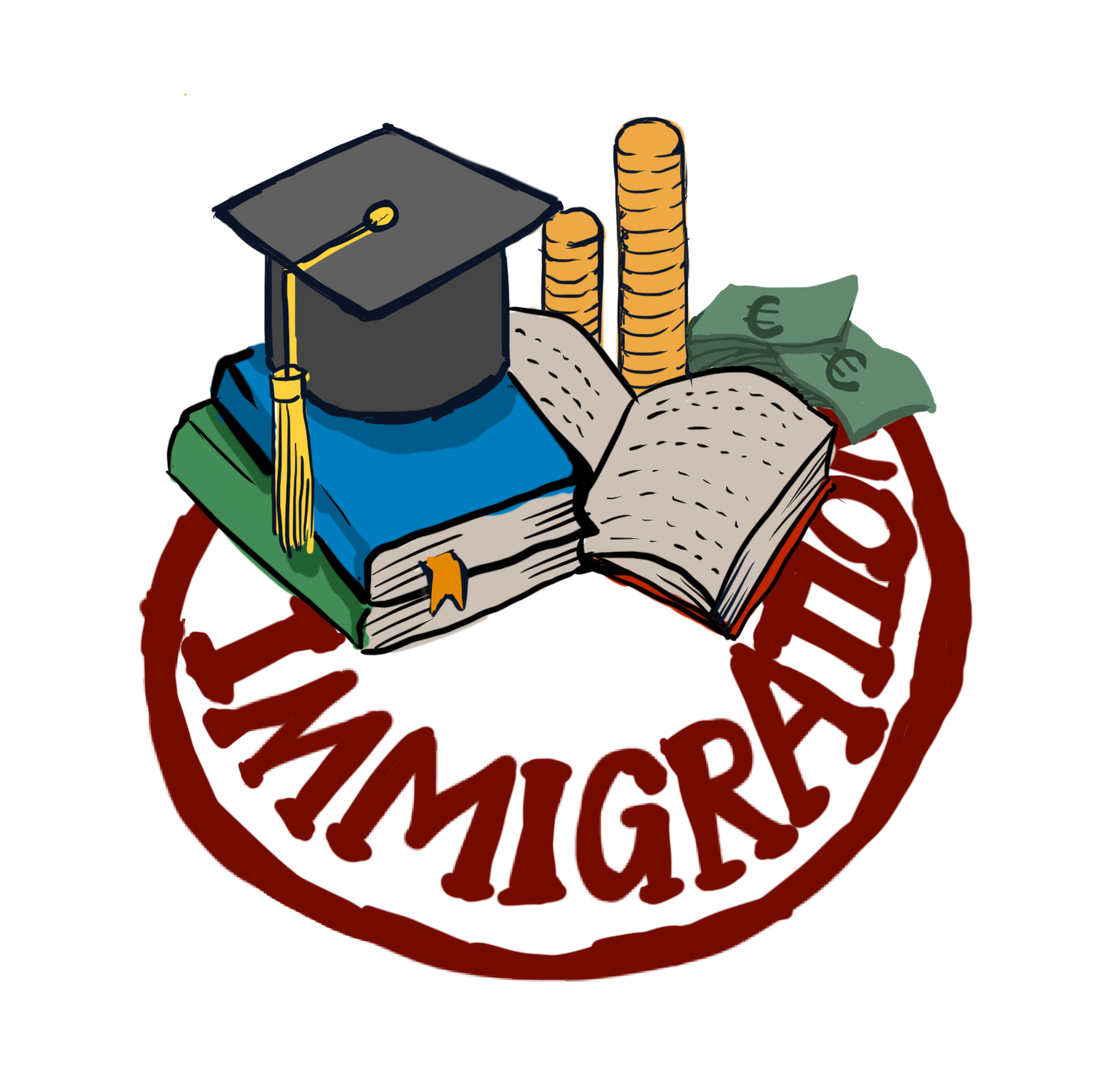Graphic by Jieyu Feng ’22
BY SOPHIE SOLOWAY ’23
French president Emmanuel Macron announced new planned sanctions on immigration on Nov. 6. The new legislation, if passed, will introduce quotas, healthcare access restrictions and new requirements for legal French residency, according to the New York Times. For example, it requires immigrants to be orally and linguistically proficient in French. Immigrants would need to wait three months before receiving access to France’s non-urgent healthcare. Mount Holyoke Professor Catherine LeGouis, however, shared that — if passed — these changes are not as novel as they appear.
“What I want to really stress is that it’s not new,” LeGouis said. “The one measure that seems to be new to me is the construction of three large detention centers in order to speed up the deportation of immigrants back to their countries of origin. That seems new to me.”
In the days following the publication of these “Twenty Decisions,” by Macron’s government, much controversy has arisen. “What he’s doing is a lose-lose strategy,” LeGouis said. “For example, the far right does not want immigrants to have any medical care. So now, they have even more ammunition. If the discourse has been reframed to be about humaneness versus the fraudulence of immigrants, they can charge immigrants with being fraudulent. The left will be unhappy as well, because they see ‘combating fraud’ as something that violates the french tradition of humaneness and the rights of man.” This pattern is reflective of a burgeoning polarization in France’s political realm, as polls from France’s INSEE — the National Institute of Economic and Statistic Studies — show that most voters find themselves evenly split between the country’s far-right and left.
Many expressed disbelief in the sincerity of these measures. LeGouis and many other French citizens and political analysts see these changes as mere political schemes. According to Reuters, Macron’s political opponent in the upcoming elections, Marine Le Pen, publicly stated that she viewed the legislation as a “swindle,” or “electoral move.” With the 2020 municipal elections approaching, there has been immense pressure on Macron to appease far-right demands for stricter controls on immigration into France, especially after the failure of election that took place in May of 2019, according to Al Jazeera.
These election results and the rising tensions between French political parties follow a tumultuous year for the French government. The internationally covered “Gilets Saunes” (Yellow vests) protests that began just a year ago, sparked by weak family pensions and high gasoline taxes, stirred widespread anti-government sentiments, a notion that the French government seems to be actively trying to combat.
“It’s a relatively weak government, that is trying very hard to look forceful and decisive — particularly by Macron but by other members of the cabinet as well. They have spent the past year trying to appear as a strong force,” LeGouis said.
This attempt will be tested in the 2022 election, when Macron and his officials face re-election and a rising far-right party. As European and global political conversations increasingly center around both immigration control and race-based policy making, these events may prove to be reflective of larger trends at play.

